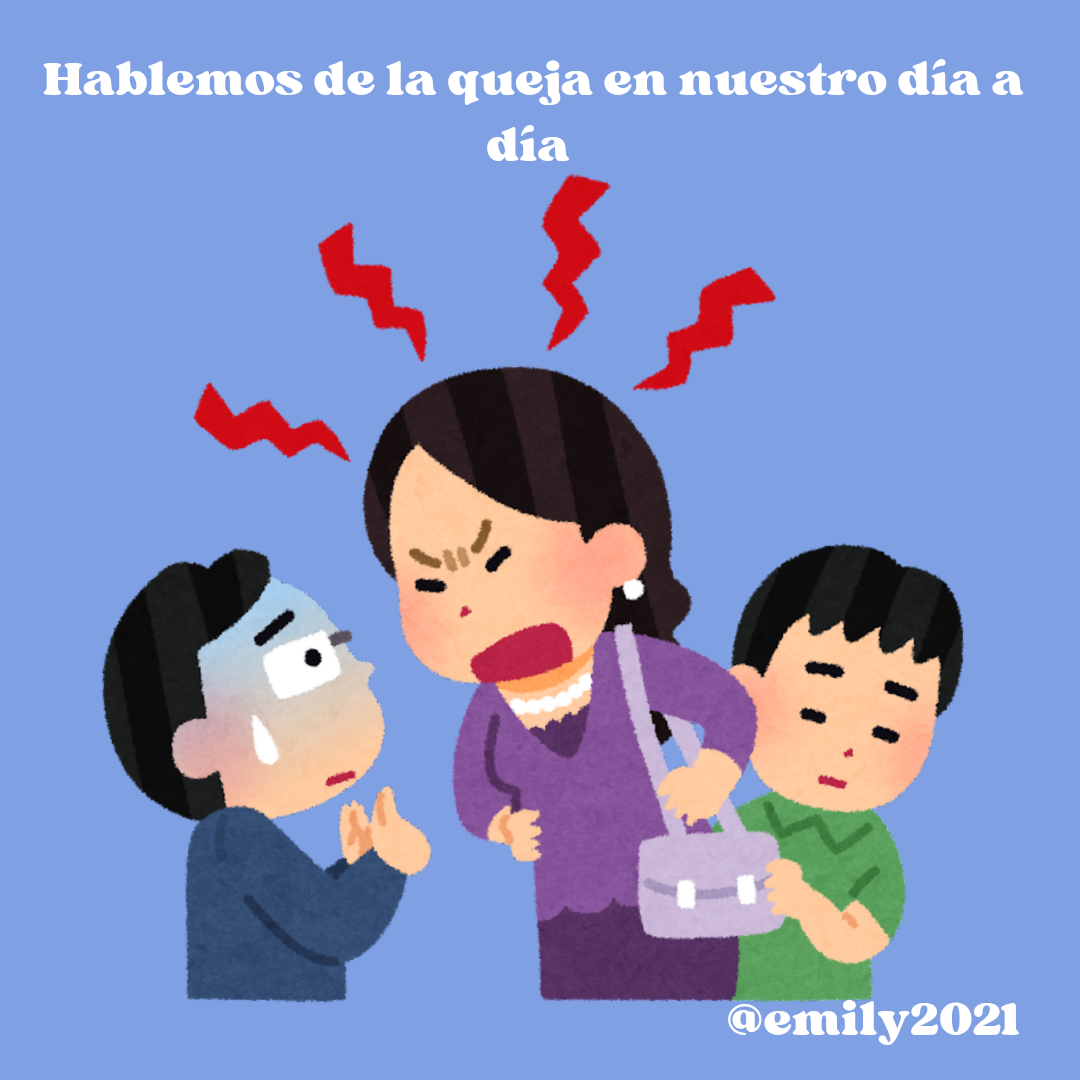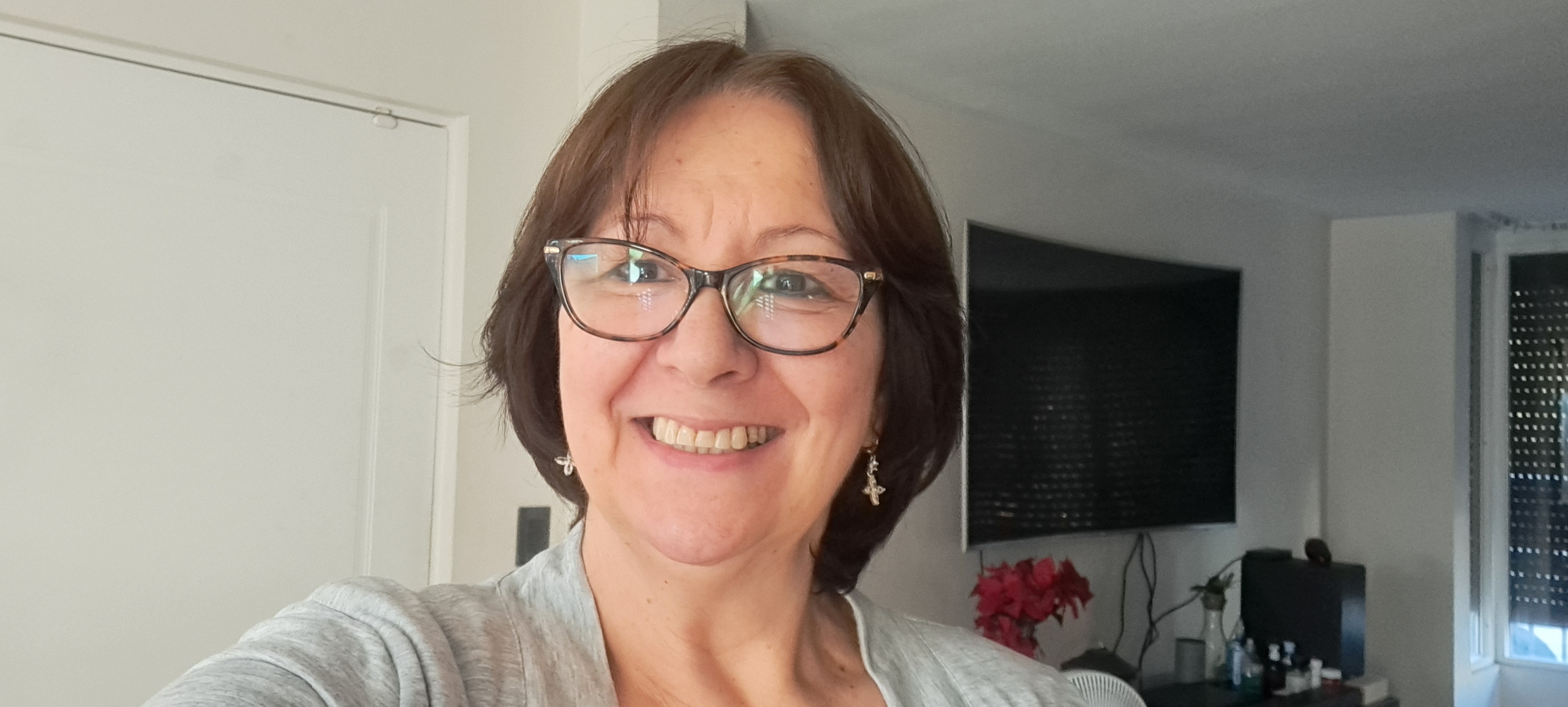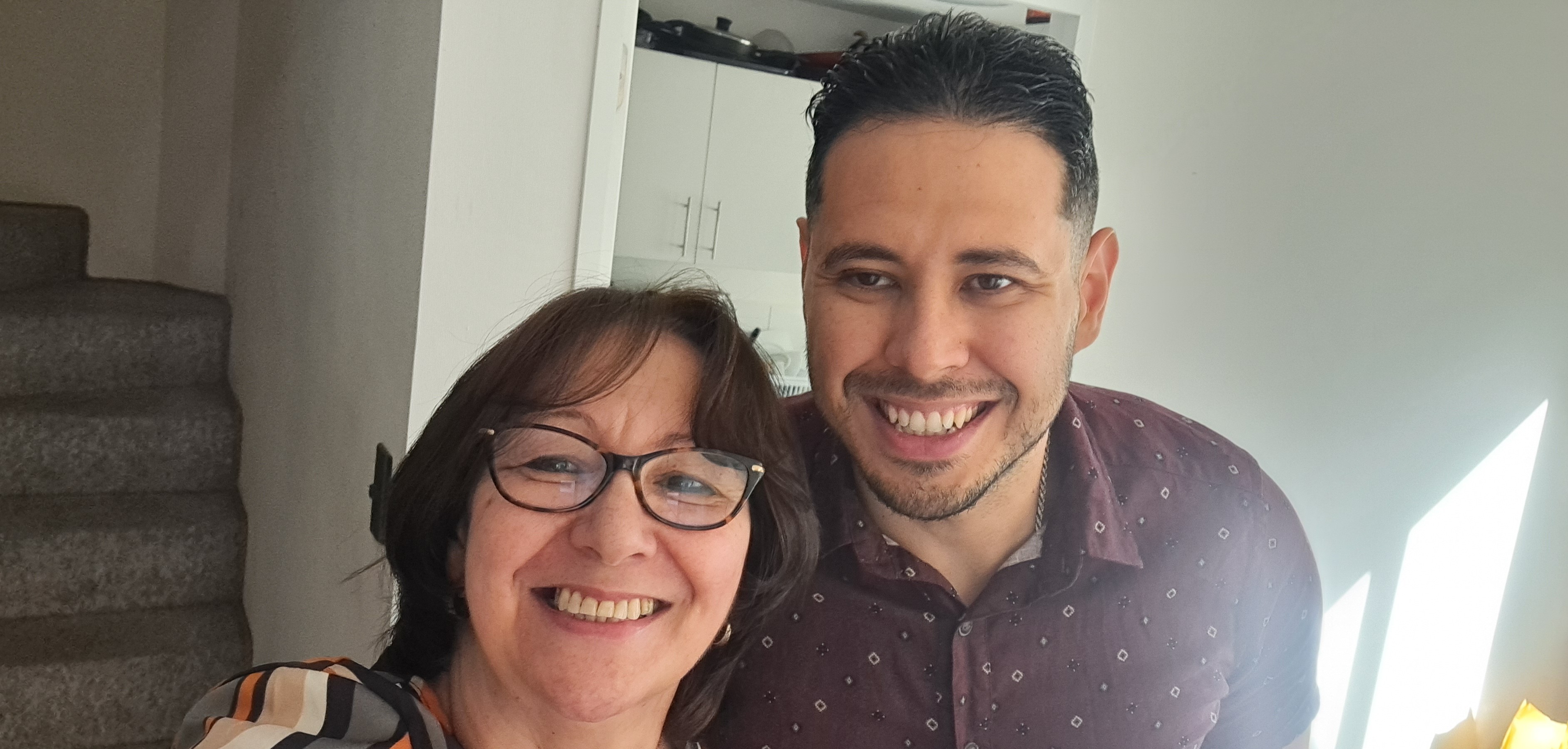¡Happy day friends of Holos&Lotus!
 |
|---|
Un saludo muy cordial para todos mis amigos de Holos&Lotus, y muy especialmente para mi amiga @naath, quien en esta oportunidad nos trae un tema por demás muy interesante sobre la "Queja en nuestro día a día" y es que para nadie es un secreto que todos en algún momento lo hemos expresado, ya sea a manera natural o de frustración ante alguna situación que estamos enfrentando lo malo es cuando la hacemos un hábito en nuestras vidas.
A very cordial greeting to all my friends at Holos&Lotus, and especially to my friend @naath, who on this occasion brings us a very interesting topic about "Complaint in our daily lives" and it is no secret that we have all expressed it at some point, whether naturally or out of frustration with some situation we are facing. The bad thing is when we make it a habit in our lives.
Bueno amigos sin más preámbulos ahondemos y conozcamos un poco más acerca de este interesante tema aportando nuestra opinión o punto de vista....
Well friends, without further ado, let's delve in and learn a little more about this interesting topic by contributing our opinion or point of view....
Primeramente hablemos que entendemos por "Queja", para mi la queja no es más que una expresión de insatisfacción, desagrado o frustración ante una determinada situación o circunstancia que vivimos y que no cumple con nuestras espectativas sino que por el contrario nos causa incomodidad, y estas las expresamos a través de un comentario verbal, gestos o actitudes que reflejan nuestra insatisfacción.
Firstly, let's talk about what we understand by "Complaint", for me a complaint is nothing more than an expression of dissatisfaction, displeasure or frustration in the face of a certain situation or circumstance that we experience and that does not meet our expectations but on the contrary causes us discomfort, and we express these through a verbal comment, gestures or attitudes that reflect our dissatisfaction.
 |
|---|
¿Desde donde crees que proviene la queja?
Where do you think the complaint comes from?
Sin duda alguna la queja viene principalmente de la insatisfacción, pero también hay muchos factores que pueden influir, tales como, cuando tenemos espectativas en algo y estas no se cumplen, entonces sentimos frustración y esto nos lleva directamente a quejarnos de esa situación, esto nos puede ocurrir en el trabajo, en casa, metas personales, etc.
Without a doubt, the complaint comes mainly from dissatisfaction, but there are also many factors that can influence, such as, when we have expectations about something and these are not met, then we feel frustration and this leads us directly to complain about that situation, this can happen to us at work, at home, personal goals, etc.
Otro factor también podría ser la falta de soluciones o estrategias para afrontar los problemas y simplemente la más fácil es escudarnos en quejas y convertir estas en un mecanismo para evitar responsabilidades, y negandonos la oportunidad de cambiar las cosas por otros medios y poder buscar siempre la solución a esa situación en nosotros mismos como debe ser.
Another factor could also be the lack of solutions or strategies to face the problems and simply the easiest is to hide behind complaints and turn these into a mechanism to avoid responsibilities, and denying ourselves the opportunity to change things by other means and always be able to look for the solution to that situation in ourselves as it should be.
¿Que herramientas has utilizado para mejorar tu voz interna?
What tools have you used to improve your inner voice?
Yo pienso que a través de los años he aprendido a manejar muchas de las situaciones y circunstancias por las que atravieso día a día, primeramente hacernos un examen de conciencia, y preguntarnos, esta actitud me ayuda?, suma?, resuelve la situación?, y es allí cuando aprendemos a tomarnos las cosas con calma para poder resolver y cambiar de perspectiva de las cosas, así que en lugar de quejarme y enfocarme en lo negativo trato de mantener una actitud positiva y ver como la puedo resolver y aprender de ella, esto me ha resultado mucho.
I think that over the years I have learned to handle many of the situations and circumstances that I go through day by day, first to do an examination of conscience, and ask ourselves, does this attitude help me? Does it help? Does it solve the situation?, and that is when we learn to take things calmly to be able to resolve and change our perspective on things, so instead of complaining and focusing on the negative I try to maintain a positive attitude and see how I can solve it and learn from it, this has been very helpful for me.
Debemos ser más generosos con nosotros mismos, evitando ser tan duros con nosotros y aprender a tratarnos como lo haríamos con un amigo, familiar etc, que este pasando por alguna situación similar, todos tenemos derecho a equivocarnos, a enmendar y salir adelante.
We must be more generous with ourselves, avoiding being so hard on ourselves and learning to treat ourselves as we would with a friend, family member, etc., who is going through a similar situation. We all have the right to make mistakes, to make amends and move forward.
¿En que situaciones la queja ha prevalecido como forma de aceptar que no puedes conseguir o lograr algo?
In what situations has complaining prevailed as a way of accepting that you cannot achieve or achieve something?
Si esta pregunta me la hubieran hecho años atrás tal vez responderia, en el trabajo, en mis relaciones personales, en mi salud, en algunas metas que no pude alcanzar, en fin, en varias situaciones, pero hoy con mucho orgullo puedo decir que gracias a los años y a la sabiduría que ido adquiriendo a través de cada uno de ellos, cuando algo no me sale como quiero simplemente acepto que me puedo equivocar, ya sea en la manera de hacerlo, en el momento, con las personas que lo lleve a cabo y busco la manera de solventar y seguir adelante, lo importante en la vida no es las veces que te caes, eso es normal y nadie aprende a caminar sin haberse caído, lo más importante es levantarse, sacudirse el polvo y seguir intentandolo, debemos aprender que de cada error puedes adquirir una enseñanza, y que todo en la vida pasa por algo, y si algo no nos sale bien, saber que lo puedes volver a intentar y esta vez sabes que no debes hacer y que si para poder lograr lo que te propongas.
If this question had been asked to me years ago, perhaps I would answer, at work, in my personal relationships, in my health, in some goals that I could not achieve, in short, in various situations, but today with great pride I can say that thanks to the years and the wisdom that I have acquired through each of them, when something does not go the way I want I simply accept that I can make a mistake, whether in the way I do it, in the moment, with the people who carry it out and I look for a way to solve it. and move on, the important thing in life is not how many times you fall, that is normal and no one learns to walk without having fallen, the most important thing is to get up, shake off the dust and keep trying, we must learn that from every mistake you can learn a lesson, and that everything in life happens for a reason, and if something does not go well, know that you can try again and this time you know what you should not do and what you should do in order to achieve what you set out to do.
 |
|---|
¿Crees que la queja nace de una forma de crianza o se va formando a medida que vamos creciendo?
Do you think that the complaint is born from a form of upbringing or is it formed as we grow?
Pienso que la queja puede tener su origen tanto en la crianza como en las experiencias que nos suceden día a día, ya que si crecemos en un ambiente donde los adultos se viven quejando constantemente sin buscar soluciones podemos llegar a adoptar esas conductas negativas.
I think that complaining can have its origin both in upbringing and in the experiences that happen to us every day, since if we grow up in an environment where adults constantly complain without looking for solutions, we can end up adopting those negative behaviors.
Otra forma de adoptar las quejas son nuestras experiencias ya que a medida que crecemos enfrentamos desafíos que nos llevan a reaccionas de diferentes maneras, muchos aprendemos a buscar alternativas y soluciones mientras que otras se refugian en la queja diaria por cada circunstancia que les ocurre.
Another way of adopting complaints is our experiences since as we grow we face challenges that lead us to react in different ways. Many of us learn to look for alternatives and solutions while others take refuge in daily complaints for each circumstance that happens to them.
 |
|---|
¿Cómo puedes aprender a ver la vida desde la gratitud y dejar la queja en un segundo plano?
How can you learn to see life from a place of gratitude and leave complaining in the background?
En realidad para aprender a ver la vida desde la gratitud, y dejar de quejarnos por todo, se requiere madurez, conciencia, y saber que cuando nos quejamos nada vamos a resolver, sólo nos quita energía para salir adelante y resolver.
In reality, to learn to see life from gratitude, and stop complaining about everything, requires maturity, awareness, and knowing that when we complain we are not going to solve anything, it only takes away energy from us to move forward and resolve.
Yo siempre he pensado que si dejaramos de enfocarnos en lo que nos falta y disfrutaramos de lo que si tenemos nuestra vida seria diferente, cuando nos centramos en los problemas carecemos de las posibilidades para solventarlo, porque nuestra atención esta en el problema, siempre debemos enfocarnos en la cosas positivas de cada situación, nada es totalmente malo, todo deja alguna enseñanza.
I have always thought that if we stopped focusing on what we lack and enjoyed what we do have, our life would be different, when we focus on the problems we lack the possibilities to solve them, because our attention is on the problem, we must always focus on the positive things in each situation we go through, nothing is totally bad, everything leaves some lesson.
Bueno amigos hasta aquí mi opinión o punto de vista sobre este interesante tema, "Hablemos de la queja en nuestro día a día". Igualmente quiero aprovechar para invitar a @zhanavic69, @tashidelek a participar..
Well friends, here is my opinion or point of view on this interesting topic, "Let's talk about complaints in our daily lives." I also want to take the opportunity to invite @zhanavic69, @tashidelek to participate
https://hive.blog/hive-131951/@naath/esp-eng-iniciativa--hablemos-de-la-queja-en-nuestro-dia-a-dia
Gracias por tu amable visita y apoyo. Un abrazo 🤗. Bendiciones
Thank you for your kind visit and support. A hug 🤗. Blessings